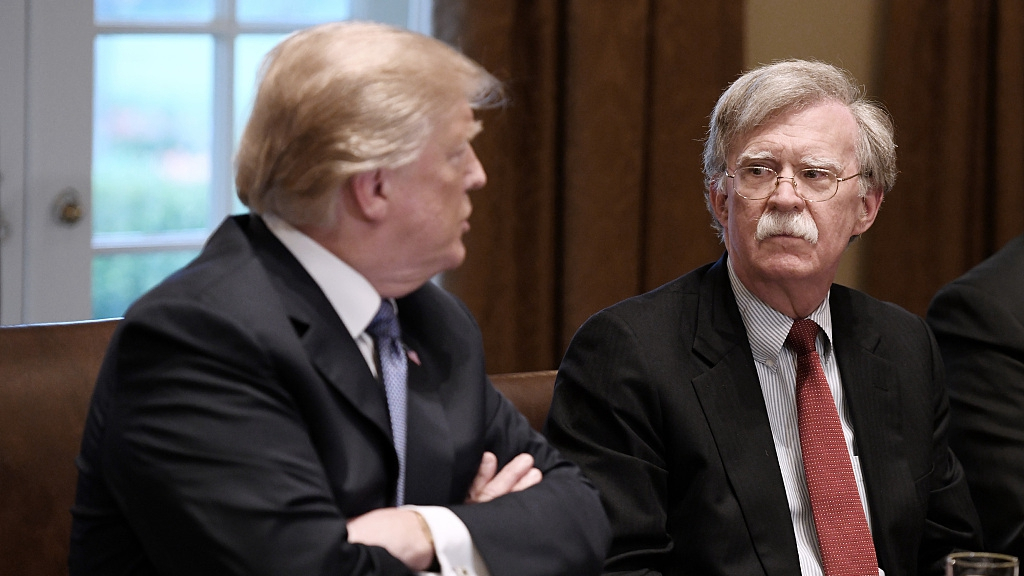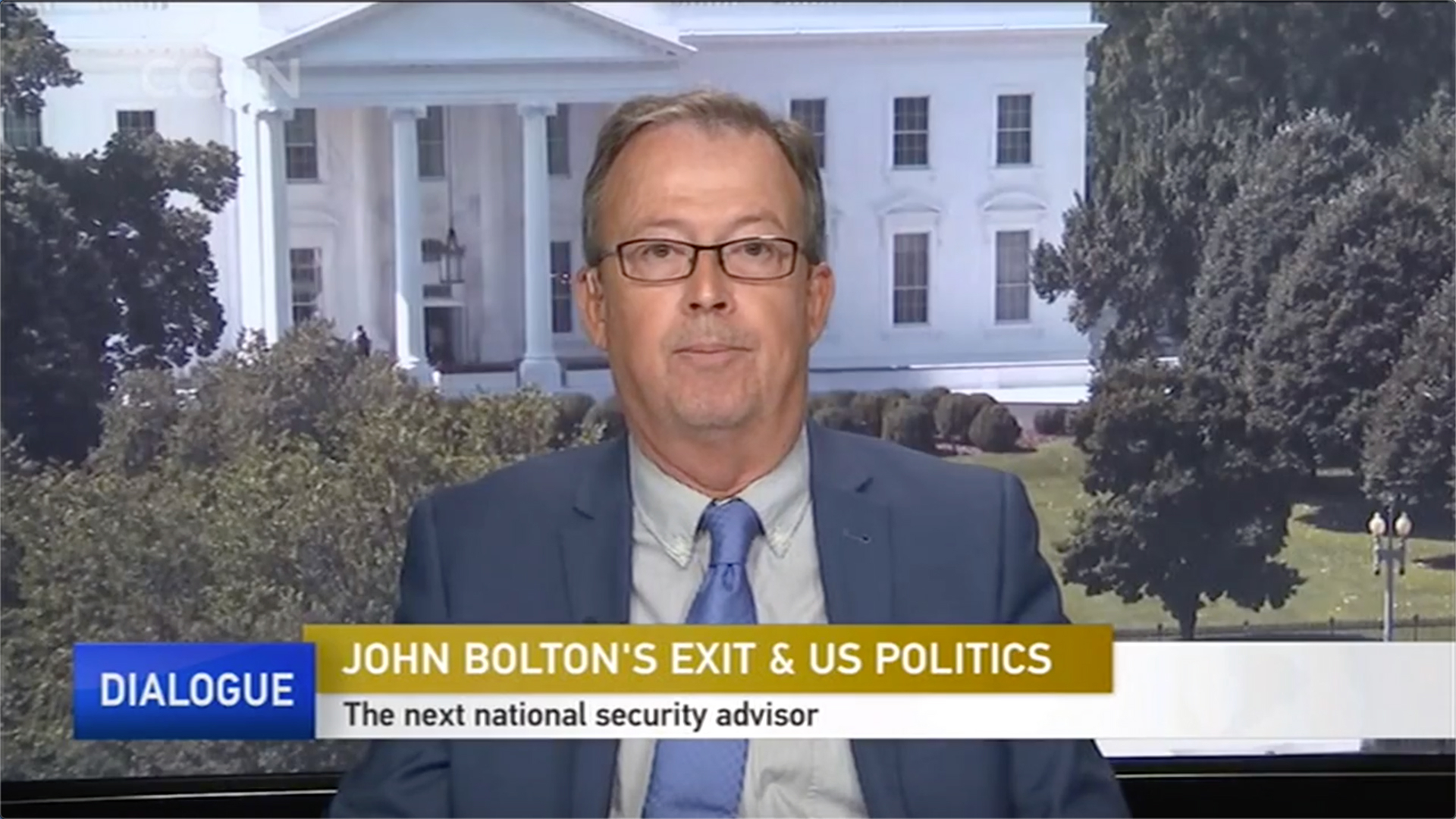

This week, U.S. President Donald Trump lost his third national security adviser, John Bolton, over what were said to be big disagreements on U.S. foreign policy.
Bolton has a neo-conservative hawkish view on American foreign policy and a desire to act aggressively on international issues such as the Iran Nuclear Deal, the Afghanistan peace process, and the Korean Peninsula issue. Trump said in a tweet that he "strongly disagreed with many" of Bolton's suggestions "as did others in the administration."
"It is important to look at who will be the next national security adviser," said Dr. Zhao Hai, a research fellow from the Chinese Academy of Social Sciences.
He stressed, "If you strongly disagree with President Trump's approach, in terms of foreign policy, you cannot stay long in his administration." Therefore, he presumed the next national security adviser will follow Trump's direction and be in line with his overall foreign policy strategy.
Rick Dunham, a visiting scholar at Tsinghua University, said that President Trump can't stand opposition and in particular he can't stand people who go to the press and talk about their opposition. He thought the trigger was John Bolton telling the press that he had opposed having Taliban leaders come to Camp David during the week before the 9/11 anniversary.

Brian Becker, an author and show host on Radio Sputnik based in Washington, DC, predicts that the most possible candidate for the next national security adviser is Stephen Biegun, who was the architect of the Hanoi Summit between Donald Trump and Kim Jong-un. He explained that Biegun, on that summit, was agreeing with the DPRK about the step-by-step incremental approach for a possible peace agreement on the Korean Peninsula. But, it turns out the Trump administration sabotaged and torpedoed a possible peace agreement because of Bolton's opposition.
Was John Bolton simply disagreeing with Donald Trump? Becker believed that Bolton was sabotaging and torpedoing the main proposals of Donald Trump, such as a peace deal in Afghanistan or a possible peace deal in the DPRK.
"John Bolton represents the nemesis for Trump doing what he wants to do for 2020, which is they have some foreign policy accomplishment," he added.
Echoing on the U.S. foreign policy collision between Trump and Bolton, Dr. Zhao reflected that the Afghanistan issue was always listed on Trump's agenda, which he wants a deal to be done in the region and withdraw American troops out of Afghanistan.
Dunham elaborated that the two of them were fundamentally incompatible. He mentioned that Trump once said, "If it were up to Bolton, we would be involved in four wars in America, North Korea, Syria, Venezuela, and Iran," which Trump avoided.
Becker emphasized that the top issue for the Trump administration now is the 2020 election, and the thing is that he has no foreign policy accomplishments. Thus, what he wants to do is to illustrate that he is a peacemaker. And he stressed that Trump wants to promote the idea of America first, meaning not being involved in endless wars in Iraq, Libya and Syria. But John Bolton made that impossible.
(If you want to contribute and have specific expertise, please contact us at opinions@cgtn.com.)

Copyright © 2018 CGTN. Beijing ICP prepared NO.16065310-3
Copyright © 2018 CGTN. Beijing ICP prepared NO.16065310-3